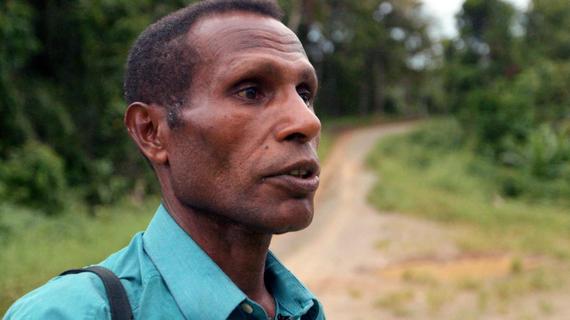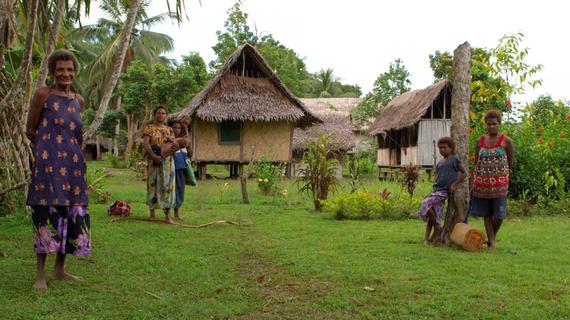Our Furniture's Dirty Secret: Illegal Land Grabs and Logging Are Robbing Papua New Guineans
Sad but true: the mahogany desk in your study or the merbau flooring in your living room probably came from illegal timber logged on tropical lands. It's a dirty trade that's been happening for decades, but a new report finds that Papua New Guinea, one of the main exporters of illegal timber in the world, is now leasing out its ancestral lands to foreign loggers and investors in one of the fastest and largest land grabs in recent history.
Published by the Oakland Institute, the report lays out how these land grabs, made possible by a scheme called Special Agriculture and Business Leases (SABLs), are putting forests customarily owned by local clans and tribes into the hands of national and foreign corporations, often through intimidation, deception, and empty promises.
"When [the company] came, my people were standing, objecting, and they used police to assault them." -- Micheal Kyibah, clan leader of Bugain Baglos (Credit: The Oakland Institute.)
As a result, between the years of 2003 and 2012, 5.5 million hectares (roughly 12 percent of PNG's total land area) have been leased to corporations through SABLs. At this rate, PNG's national Forest Authority predicts that roughly 83 percent of PNG's accessible forest will be gone or damaged in less than 10 years.
About 83 percent of PNG's population lives in rural areas and are heavily dependent on their lands and forests for their subsistence and livelihoods. Although the constitution of PNG calls for the "strict control of foreign investment capital" and for "wise use to be made of our natural resources and the environment," the reality in PNG is far from such ideals.
"Over and over, we meet local people who are told that this is going to very good for them," says Frederic Mousseau, Policy Director at the Oakland Institute and author of the report. "They are told they will get health facilities, schools, etc. Unfortunately, the way it's happening, it's not going to bring them anything. What we've seen in West New Britain with even so-called 'sustainable' companies is that there's still no drinking water, no schools, improved livelihoods, etc."
"Many generations have lived here and will continue to until the world ends. Land is the main source of our life." -- Aipapu Marai, Councillor, Sausi, Madang Province (Credit: The Oakland Institute.)
SABLs are also ramping up illegal logging, and many arrows of accountability point west. About 97 percent of PNG's contraband timber is sold to China, the world's largest importer and exporter of illegal timber, whose two biggest markets for wooden furniture and parts are the U.S. and Europe.
As global consumers, the international community is also complicit -- however unintentionally -- in the exploitation of rural peoples. Although it may seem challenging to consume responsibly in a flawed system, change must begin somewhere.
"Start recognizing something very serious is happening there," says Mousseau. "PNG is very far from everyone -- the UN, the World Bank, all the international players who are looking at international issues. But everyone should take issue with everything happening there because it's a huge waste for people and for the environment. It's a problem for everyone."
To learn more, watch On Our Land, a film about the devastation of PNG's rural areas and peoples. You'll never look at your teak furniture the same way again.
Information used in this article came from the report "On Our Land: Modern Land Grabs Reversing Independence in Papua New Guinea," published by the Oakland Institute in partnership with the Pacific Network on Globalisation.


